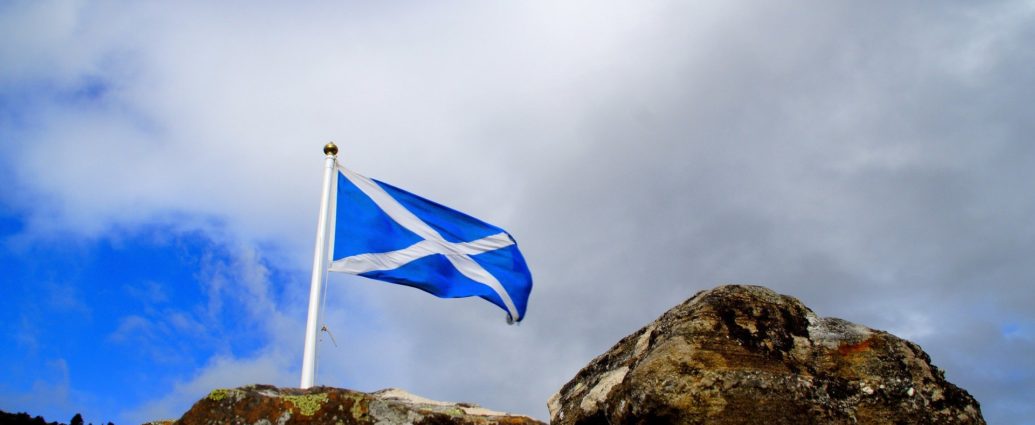According to recent polls, support for independence in Scotland is falling. The recent fractures in the foundations of the SNP exposed by the enquiry into suspected conspiring against Alex Salmond by First Minister, Nicola Sturgeon, are thought to be responsible.
An opinion poll carried out by Survation on behalf of the Sunday Mail equalises ‘Yes’ and ‘No’ voters in the question of Scottish independence. This 50-50 stalemate is particularly shocking considering that this is the first time in 22 polls that support in favour of independence has not come out on top.
The poll found that 44% of voters would vote ‘Yes’ and 43% would vote ‘No’ in the event of a referendum. But, when all who ‘Don’t Know’ are removed, the poll equalises – the lowest outcome for the ‘Yes’ camp in as long as 9 months. This is a significant drop since Survation’s January 2021 poll where those in favour of self-determination for Scotland came out on top.
Here is today's Sunday Mail front page, which leads on a bombshell poll on Scottish Independence #scotpapers pic.twitter.com/hY8cHEujM6
— Sunday Mail (@Sunday_Mail) February 28, 2021
A Brief History of Scottish Independence
Scotland has been part of the United Kingdom since the 1707 ‘Acts of Union’ when England and Scotland “United into One Kingdom by the Name of Great Britain”.
The political movement that aims to make Scotland an independent sovereign state dates back as far as the 19th century with demands for ‘home rule’ coming from each part of the UK following the creation of the Union.
The Scottish National Party (SNP) was created in 1934. While initially calling for more devolved powers for Scotland, it soon turned to advocate for complete self-determination in the form of independence.
A devolution referendum was held in 1979 which required 40% or more of the population to show support for the Scotland Act 1978 which would have created a Scottish Assembly. Whilst those in favour were in the majority (51.62%), the Labour government maintained that, due to low turn-out, the conditions of the referendum were not met and, thus, did not stand.
18 years later, in 1997, another devolution referendum was held. This time around, Scots (as well as the Welsh and Northern Irish) voted overwhelmingly in favour of distributing devolved powers to the nations of the UK.
74.24% of voters in Scotland voted in favour of increasing Scottish powers, sealing the deal. The Scottish Parliament was created and, following elections in 1999, began enacting its powers.
This was a historic result for the UK. So much so that then Prime Minister, Tony Blair, declared that “the era of big centralised government is over”.
21st Century Support for Independence
14 years after the success of the devolution referendum, the SNP won their first majority in the Scottish Parliament in 2011. In securing his majority, SNP leader Alex Salmond pledged to hold an independence referendum in the next five years.
A 2012 agreement signed with the Prime Minister, David Cameron, secured the referendum, scheduling it for September 2014. Ultimately, those opposing independence beat those in favour with 55% to 45% after Deputy Prime Minister Nick Clegg “vowed” to devolve more powers to Scotland if the notion of self-determination was rejected.
When Scotland voted in favour of remaining a part of the European Union whilst England and Wales voted to leave, the SNP pledged to fight for another referendum. The results of the Brexit referendum, the SNP argued, would “take Scotland out of the EU against their will”, and thus plainly stated the case for independence.
Boris Johnson, however, maintains that the referendum was “once-in-a-generation” which suggests he won’t be offering Sturgeon the opportunity for one any time soon.
Why is support for independence falling now?
Support for Scottish independence rose rapidly during 2020 when the Covid-19 pandemic seemingly exposed flaws in Westminster and highlighted strengths in Holyrood. Johnson and his government were criticised for their more relaxed approach which meant that the four nations of the UK were tackling the virus in disparate ways.
However, recent allegations against Sturgeon which suggest she conspired against former SNP leader and First Minister of Scotland, Alex Salmond, during his sexual harassment trials have unmasked chinks in the armour of the faces of the Scottish independence movement.
While giving evidence in the Holyrood enquiry into the suspected misconduct, Salmond delivered a devastating blow for Sturgeon’s previously infallible SNP: “Scotland hasn’t failed. Its leadership has failed”.
"Scotland hasn't failed. Its leadership has failed."
Alex Salmond has criticised the leadership of the civil service, Crown Office and the Scottish government while giving evidence at a Holyrood inquiry.
Read more
https://t.co/Jq1fnGa6V5 pic.twitter.com/DTUAZZsHAT
— BBC Scotland News (@BBCScotlandNews) February 26, 2021
What the electorate is seeing here is a deeply divided political party – it is no wonder some faith has been lost. A recent poll proves this: 42% say the party appears united, compared to 50% in January.
George Galloway, former Labour MP for the now abolished constituency Glasgow Hillhead and opposer of Scottish independence, claimed “the tide is now turning” and that Sturgeon and the SNP’s “huffing and puffing” has done nothing for their cause.
Whilst it is still expected that the SNP will receive a majority vote in the Holyrood elections in May, current polling suggests that this may not be as large a majority as suspected. Whilst those committed to self-determination will still strive for independence, the undecided will certainly be put off by such fractured relations within the party aiming to deliver it.
While we await the conclusion of the Holyrood enquiry into the misconduct involving Salmond and Sturgeon, we can only speculate on the damage that will be done to both the SNP and the independence movement and what this may mean for their future.
Nia Thomas
Featured image courtesy of M W via Pixabay. Image license found here. No changes were made to the image.

